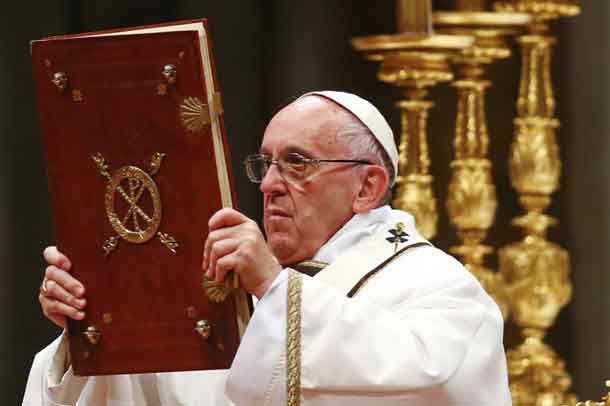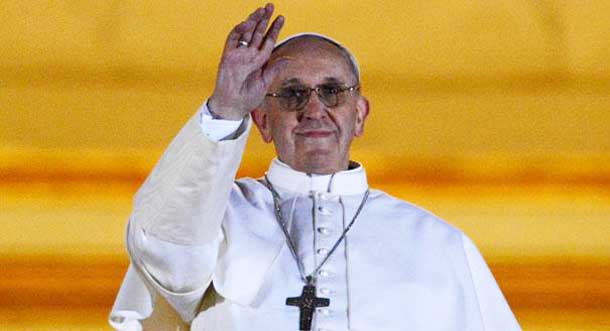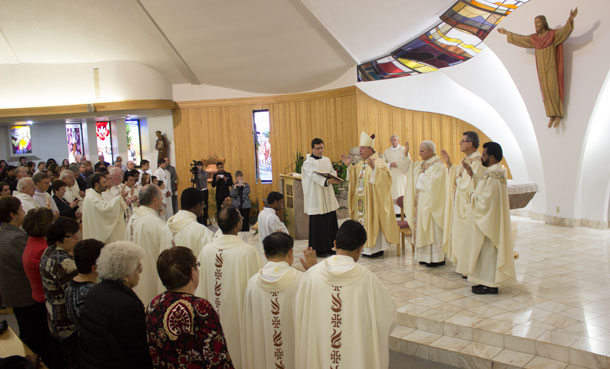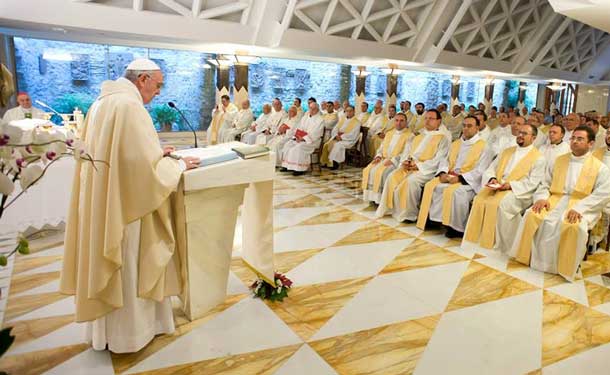The Catholic Church has issued a joint statement repudiating the “Doctrine of Discovery” and those concepts that fail to recognize the inherent human rights of indigenous peoples.
The statement was released by the Dicastery for Culture and Education and the Dicastery for Promoting Integral Human Development, and highlights the Church’s greater awareness of the sufferings of indigenous peoples due to the expropriation of their lands and forced assimilation policies.
“The Doctrine of Discovery” is a theory used to justify the expropriation of indigenous lands by sovereign colonizers from their rightful owners. The statement declares that this theory is not part of the teaching of the Catholic Church and affirms that the papal bulls that granted such “rights” to colonizing sovereigns have never been a part of the Church’s Magisterium.
The statement comes eight months after Pope Francis’ visit to Canada and reaffirms the Church’s rejection of the colonizing mentality. “In the course of history,” the document recalls, “the Popes have condemned acts of violence, oppression, social injustice, and slavery, including those committed against indigenous peoples.” It also acknowledges the countless examples of bishops, priests, women, and men religious and lay faithful who gave their lives in defense of the dignity of those peoples, while also recognizing that many Christians have committed evil acts against indigenous peoples.
The Statement explains that the legal concept of “discovery” was debated by colonial powers from the sixteenth century onward and found particular expression in the nineteenth-century jurisprudence of courts in several countries. According to some scholars, this “doctrine” found its basis in several papal documents, specifically two bulls of Nicholas V, Dum diversas (1452) and Romanus Pontifex (1455); and Alexander VI’s bull Inter caetera (1493). These are legal acts by which these two Pontiffs authorized the Portuguese and Spanish sovereigns to seize property in colonized lands by subjugating the original populations.
“Historical research clearly demonstrates that the papal documents in question, written in a specific historical period and linked to political questions, have never been considered expressions of the Catholic faith,” the statement declares. Nonetheless, “the Church acknowledges that these papal bulls did not adequately reflect the equal dignity and rights of indigenous peoples.” The Statement goes on to say that “It adds that “the contents of these documents were manipulated for political purposes by competing colonial powers in order to justify immoral acts against indigenous peoples that were carried out, at times, without opposition from ecclesiastical authorities.” The two Dicasteries, therefore, affirm, “It is only just to recognize these errors, acknowledge the terrible effects of the assimilation policies and the pain experienced by indigenous peoples, and ask for pardon.”
In the words of Pope Francis, “Never again can the Christian community allow itself to be infected by the idea that one culture is superior to others, or that it is legitimate to employ ways of coercing others.” The statement concludes that the Catholic Church repudiates those concepts that fail to recognize the inherent human rights of indigenous peoples, including what has become known as the legal and political “doctrine of discovery.”
The statement also recalls the “numerous and repeated” declarations of the Church and the Popes in favor of the rights of indigenous peoples, beginning with the 1537 bull Sublimis Deus of Paul III, which declared that indigenous peoples “are by no means to be deprived of their liberty or the possession of their property, even though they be outside the Christian faith; and that they may and should, freely and legitimately, enjoy their liberty and possession of their property; nor should they be in any way enslaved; should the contrary happen, it shall be null and have no effect.”
Finally, the statement notes that “the Church’s solidarity with indigenous peoples







